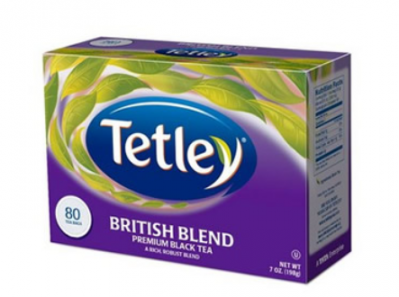WORLD BANK INVESTMENT ARM 'TROUBLED' BY REPORTS OF CHILD TRAFFICKING ON PLANTATIONS
Angry TATA Global Beverages instructs lawyers over Tetley tea slavery allegations

The newspaper's hard-hitting short video documentary ‘Assam’s Modern Slaves The Real Price of Tetley Tea’ documents conditions at an Assam tea plantation owned by Amalgamated Plantations Private Limited (APPL), within which both TATA and the World Bank’s investment arm (IFC) hold shares.
Journalist Gethin Chamberlain states that tea pickers at the Narahani plantation who live on the estate (many of whom are female) are paid as little as 91p (around $1.50) per day for a six day week, just over half of the basic minimum wage in India.
He claims that the plantation supplies global brands including Tetley, a point that a furious TATA Global Beverages strenuously denies.
“This is a story about how modern slavery works, and about how the price you pay for your cherished tea [here we cut to a shot of Tetley teabags] drives an ancient trade that many assume has been consigned to history,” Chamberlain states.
Chamberlain alleges that the Indian tea industry’s steadfast refusal to pay the national minimum wage of $2.82/day in cash at Narahani “has created breeding ground for the slave trade”, although he says the tea firms claim to make up for low wages by providing free accommodation and schooling.
The film (there is a linked article) says that at least 14 girls have gone missing from Narahani – one as young 12 – who are lured away by traffickers with tales of the high life in the boom city of Delhi, “a mega city 1,000 miles away” with a booming middle class that demands cheap labor.
TATA Global Beverages is livid that the Tetley brand is under fire, since although TATA holds a circa. 41% share in APPL that it wants to reduce further, it insists it has never used to plantation to source tea for any of its brands.
A spokesman told BeverageDaily.com this morning that the brand had instructed defamation lawyers in the aftermath of the film.
TATA also sent us statement which said The Guardian had highlighted a very serious social issue “but mistakenly claimed that the plantation in question supplies Tetley internationally”.
“The report was also wrong to suggest that criminal trafficking is a consequence of the amount the tea industry pays in India and overlooks the fact that trafficking, sadly, can occur in any quarter of society,” the company adds.
Chamberlain says it is estimated (by whom he does not say) that as many as 100,000 young children are domestic slaves in Delhi, while one fifth are also subject to physical and sexual abuse.
The culmination of the film sees Bachpan Bachao Andolan (BBA) rescue workers and the parents of lost child Sumeela recover the girl, who uses her employer’s phone to tell them her Delhi address.
In a moving scene Sumeela is reunited with her father, and tells her rescuers that she was locked in the house and forced to work 17 hour days.
“Sumeela Tanti – three years a slave”, Chamberlain says on the voiceover.
“The tea companies say they cannot pay another rupee more, but the campaigners who’ve spent a lifetime rescuing these girls say that a decent wage might at least begin to even offer an alternative to slavery,” he concludes.
But TATA said in its statement that tea pickers' wages in Assam are set not by any individual company but by an industry-wide wage settlement; this is arrived at via a tripartite agreement between the Assam government, the workers’ union recognized by the government, and the India Tea Association (ITA).
“Therefore, such wages apply equally to all tea plantation companies in Assam, which have been supplying and continue to supply many of the world's tea brands,” the company said.
Given its stake in APPL, TATA also recognizes the need to act: “As a responsible company [we] have decided to commission an independent third party audit on living and working conditions in the APPL tea plantations and will address any areas and issues identified,” it said.
World Bank investment arm the IFC (which reportedly holds a circa. 15% share in APPL) at the time of writing, and The Guardian documentary notes that the World Bank is investigating working conditions at the Narahani plantation.
Asked about the rationale for its investments, and whether due diligence had been done in this case beforehand, an IFC spokesperson told BeverageDaily.com: "When IFC invested in Amalgamated Plantations Private Limited (APPL) in 2009, the tea industry in India was undergoing deep restructuring, with major producers exiting the plantation business.
"IFC chose to invest to sustain employment of 31,000 permanent workers at Tata Group’s 24 tea estates in 2009. We believe IFC can make a significant contribution to the ongoing improvement of the APPL tea estates," they added.
"IFC commends the work of Mr. Chamberlain and BBA to reunite families and bring traffickers to justice. Furthermore, we share the filmmaker's interest in ensuring that the plantation workers are afforded the rights due to them and proper access to safe working conditions," the spokesperson said.
"We are troubled by the reports of trafficking at the client's tea plantation and are workin with the client as it looks into these claims."








